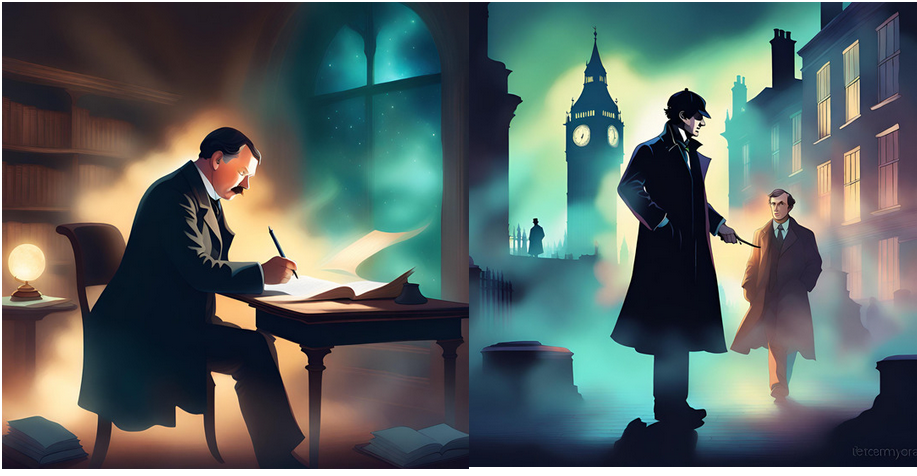Feeling Trapped? You’re Not Alone
Many of us find ourselves at a crossroads in our mid-careers, feeling stuck in a job that initially held promise, but now lacks the spark of fulfillment. The initial passion has faded, replaced by a persistent urge for something more meaningful. If you have come across this crossroad then this blog is about how to help you overcome this career change impediment and decide to take a step to finally try something new and cool in life.
It’s a common experience, and often, the fear of wasted time and effort holds us back from pursuing a more fulfilling path. This fear often manifests as the “sunk cost fallacy” a deceptive mental trap that whispers, “I’ve already invested so much time and resources, it seems too late to consider a career change.” However, acceding to this misjudgment can significantly obstruct your journey toward professional fulfillment.
The Sunk Cost Fallacy: A Deceptive Roadblock in Career Change
The sunk cost fallacy focuses solely on past investments of time, money, or effort and discourages individuals from making career change decisions based on future potential. Imagine you are walking past a toy shop at closing time and observing the owner meticulously putting away toys. Your initial reaction might be, “Ugh, not for me!” But consider this – what if the owner’s true passion lies elsewhere? Perhaps she harbors a deep desire to become a blacksmith, a dream put on hold due to the time and energy invested in building her toy shop.
Just because they have invested heavily in this current path doesn’t mean their aspirations are irrelevant or invalid. Similarly, the time, money, and effort you’ve poured into your current career, while undeniably important, should not necessarily define your future trajectory.
Reframing Your Past: Beyond “Sunk Costs”
While your past experiences and investments played a role in shaping your current reality, viewing them solely as “sunk costs” ignores the valuable lessons learned and personal growth gained. These experiences, however challenging or seemingly unrelated to your desired path, have undoubtedly shaped you.
They’ve polished your skills, broadened your knowledge base, and prepared you with a unique perspective. These valuable assets can be effectively leveraged in your career change journey, making the transition smoother and enriching your future endeavors.
The True Cost: Stagnation vs. Fulfillment
The real cost lies not in the past, but in aimlessly continuing a path, that brings you no joy and actively drains your energy and motivation. Every moment spent unfulfilled, going through the motions in a job that does not resonate with your values, is a moment stolen from your potential and happiness.
You pay a significant price for your mental and emotional well-being, not to mention the loss of the opportunity to experience the satisfaction and fulfillment that comes with truly meaningful work. Ask yourself: is the perceived security of familiarity worth the sacrifice of your personal fulfillment and long-term career satisfaction?
Investing in Your Future, Not Your Past
Embracing a career change necessitates additional investments – time, money, and traversing some degree of uncertainty. However, the potential reward – a fulfilling career that aligns with your passion and fuels your spirit – benefits far eclipse any temporary costs.
Instead of viewing these investments as burdens, consider them as strategic steps towards a brighter future. Look at it as an investment in long-term happiness and professional fulfillment, not a burden of wasted resources. You are investing in yourself and your future, unlocking the potential for a satisfying career path.
Embrace Career Change, Believe in Your Dreams

The “sunk cost fallacy” is just that – a fallacy. It doesn’t have to dictate your future. As Ralph Waldo Emerson eloquently stated, “The only person you are destined to become is the person you decide to be.”
Your past choices, while significant, do not have to define your future. “It is never too late to be what you might have been” as George Eliot reminds us. Believe in yourself and your potential.
Case Study
From Doctor to Detective: Dr. Doyle’s Unexpected Career Change and Lasting Legacy
Situation: You are a doctor, but your practice is not gaining popularity. What do you do? Well, in 1887, Dr. Arthur Conan Doyle faced a similar disappointing situation. But instead of giving up, he took a hop and launched on a career change that would alter not only him but the world – writing.
His pen name
Arthur Conan Doyle, creator of the legendary detective Sherlock Holmes. This was not just a personal win, though. It turns out, Sherlock Holmes accidentally helped revolutionize global crime-solving techniques! Let us now glance at this exciting story.
From Diagnoses to Detective Tales
Despite his medical background, Doyle decided not to ditch his skills completely. Rather his medical background training in observation, deduction, and logic became the cornerstone of Sherlock’s amazing detective work.
From Struggling Doctor to Literary Icon
Dr. Doyle’s gamble to career change paid off in a big way. His Sherlock Holmes stories became international bestsellers, translated into countless languages, and even inspired a museum in London. The success continues to this day, a feat which went much beyond any imagination.

Beyond the Books: A Crime-Solving Revolution
Interestingly, there’s more! Sherlock Holmes, with his emphasis on evidence and scientific reasoning, inadvertently influenced the dawn of modern forensic science. This helped a revolutionary shift from the age-old insensitive methods, paving the way for a scientific approach to crime investigations.
The Takeaway
Dr. Doyle’s life is an inspiring reminder for us that career changes can be powerful and even lead to unexpected offerings. It shows that with creativity and willingness to explore unknown domains, you can not only find success for yourself but also make a positive impact on the world – even if it is by creating a mere fictional detective!
Call to Action: Rewrite Your Story
Now is the time to break free from self-imposed limitations and rewrite your professional narrative. Take charge of your career journey by exploring alternate resources, such as online courses, career coaching, or industry events. Connect with professionals in your desired field, gain guidance from their experiences, and seek mentorship opportunities.
Remember, the future belongs to those who believe in the beauty of their dreams, just like Eleanor Roosevelt said. So, chase your true calling. Embrace the career change and embark on a journey towards a line of jobs you love, a livelihood filled with purpose, passion, and endless possibilities.
Your Future Awaits
It doesn’t matter how old you are or where you are in life, you can always rephrase your job story. So, why not start today? Visualize a future where you’re doing work that makes you jump out of bed in the morning, all excited and full of energy!
That means you decide where you go and what you do with a career change decision. So, let us live in the moment, learn from the past, and get ready for a future full of adventures and possibilities.








2 thoughts on “The Sunken Cost Fallacy and Career Change: Is It Ever Too Late?”
Pretty nice post. I just stumbled upon your weblog and
wanted to say that I have really enjoyed surfing around your blog posts.
In any case I’ll be subscribing tto your feeed and I hope you write again soon!
Thoughtful!